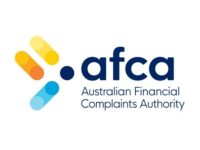Could your lack of clarity with franchisees cost you?
In March 2018, the Australian Senate referred an inquiry into the ‘operation and effectiveness of the Franchising Code of Conduct’ to the Parliamentary Joint Committee on Corporations and Financial Services for report by 30 September 2018 (now pushed back to 6 December 2018).
From the pool of 197 published submissions received by the committee (noting that some 140 confidential submissions were also made), issues with supplier rebates and increasingly high supply costs to franchisees stood out as a recurring theme.
Many of the submissions canvassing this issue broadly raised one of the following complaints:
- the total quantum or actual benefit received by the franchisor in supplier rebates are not disclosed;
- the actual cost of supplies is far greater than what had been disclosed by the franchisor initially;
- franchisees are required to purchase new supplies, equipment, or fit-out more often than is reasonable (and often where the franchisor will receive a rebate from that supply); and
- the amounts received by the franchisor in supplier rebates are not shared with franchisees or used to benefit the franchise network.
While the tangible outcomes of the parliamentary inquiry remain a guessing game, these complaints have brought the issue of franchise supply chains into the spotlight.
With this issue at top of mind, franchisors should be asking themselves the question: ‘how transparent is my supply chain?’ noting the most egregious examples of non-transparency may even give rise to claims of misleading and deceptive conduct.
Revisiting the disclosure requirements
When considering how transparent your franchise supply chain is, you need to understand where the benchmark is currently set, according to the legal requirements. Therefore, you need to also ask (and answer) the question: ‘how transparent does my supply chain have to be?’
Franchisors have strict disclosure requirements under the Franchising Code relating to the supply of goods and services. The Code requires that your disclosure document, which must be provided to a prospective franchisee at least 14 days before entering the franchise agreement, sets out details on your requirements regarding the supply of goods and services to a franchisee.
The list of information you need to provide includes:
- any restrictions on the franchisee from purchasing supplies from other sources;
- whether you have any ownership or interest in any supplier which the franchisee may have to purchase supplies from;
- whether the franchisee must accept goods or services from you, or an associate (related company or person);
- to what extent you can change the range of goods or services which the franchisee must purchase;
- whether you or an associate will receive a rebate or financial benefit from the supply of goods or services to franchisees; and
- whether any rebate or financial benefit you receive is shared in any way with franchisees.
- You must also include a full list of establishment and other (recurring or isolated) costs the franchisee will have to, or may be expected to, bear to set up and operate the business.
- You should ‘test’ your current practices based on these key disclosure requirements to get an indication of your supply chain’s transparency. If you fail to disclose a rebate or financial benefit you receive from a supplier, you will be breaching the Code.
- The submissions to the parliamentary inquiry also revealed that another common complaint relates to the disparity between the disclosed costs of the supplies versus the actual costs franchisees incur. If the price ranges you disclose do not, with reasonable accuracy, reflect current market values or rates, you will likely be breaching the Code. To avoid this, you should conduct a reconciliation of the costs you disclose versus actual costs across the network.
Additionally, you should keep in mind your duty to act in ‘good faith’ with franchisees in all matters relating to the franchise agreement and the Code. This duty is relatively young (coming into force in 2015) and still somewhat ‘untested’ by the courts.
However, if you required franchisees to purchase additional supplies or refurbishments more often than reasonably needed, you could be violating this duty, especially if you receive large rebates or benefits from the supplier.
-
Ensuring your supply chain is transparent
- Regardless of whether your current practices fully comply with the legal requirements, the submissions to the parliamentary inquiry reveal that there may be a systemic disconnect between disclosures made by franchisors and franchisees’ understanding of how those disclosures will impact their operations in practice.
- To minimise these misunderstandings, you should take practical steps to create a transparent system and reduce the risk of a dispute arising. Steps could include, for example:
- explaining your supply chain to a prospective franchisee before entering the agreement;
- requiring franchisees to prepare a business plan before signing the franchise agreement, so they consider the actual costs they will incur (and can demonstrate their general business acumen);
- providing a separate summary of the supply chain to prospective franchisees, incorporating example supply costs and any rebates you receive;
- circulating an explanatory memo to franchisees before implementing any changes to the supply chain;
- using at least part of the rebates you receive to benefit franchisees; and
- allowing franchisees to purchase supplies from other sources, provided all reasonable standards and specifications are met.
Since the disclosure document must be updated each year (unless an exception applies), you should use this opportunity to carefully cross-check all disclosures to ensure consistency across the network.
Consequences of non-transparency
Where non-disclosure or inaccurate disclosure amounts to a breach, or likely breach, of the Code, the Australian Competition and Consumer Commission (ACCC) has the ability to impose financial penalties or commence proceedings against a franchisor.
In some cases, failing to disclose or misrepresenting facets of your supply chain may amount to misleading and deceptive conduct under the Australian Consumer Law (ACL).
If you make statements or representations to a prospective franchisee about the supply chain which you know, or ought to have known, were false or misleading, the ACCC could rule that you have broken the law. Such a breach entitles the franchisee to claim losses if they could show that they would not have entered into the franchise agreement had they known the statements were false or misleading.
Key takeaways
The parliamentary inquiry has identified supply chain transparency as a ‘live’ franchising issue. Therefore, franchisors should:
- ensure they have made the required disclosures, and those disclosures are accurate; and
- take further steps to ensure supply chain transparency.
Franchisors should take these steps now, as the benchmark for compliance may ultimately tighten as a result of the inquiry.











